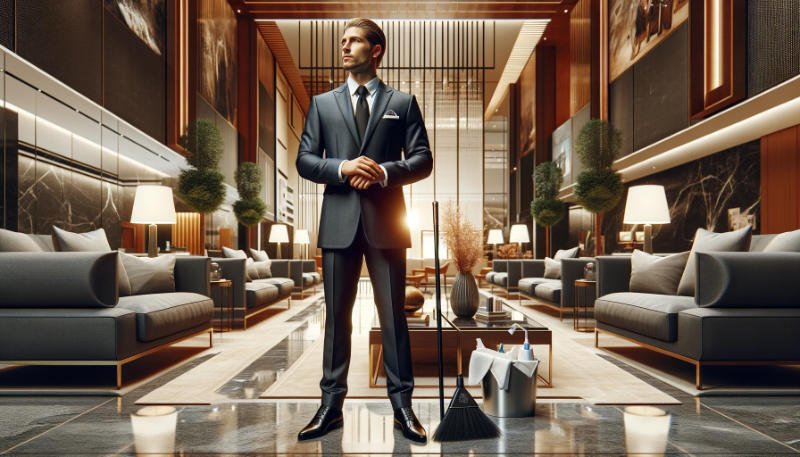At first glance, the hospitality industry and retail businesses appear to be distinct industries with different goals, products, and customer interactions. But when you look closer at the essence of what hospitality is, you might start to wonder: could retail actually be part of the hospitality sector?
Traditionally, the hospitality industry is defined as businesses that provide services focused on customer care, comfort, and entertainment. It includes sectors like hotels, restaurants, event planning, travel, tourism, and even some forms of leisure activities.
The goal of hospitality is to create a welcoming and enjoyable experience for guests, whether they’re dining at a fine restaurant, staying at a resort, or attending a conference.
Creating memorable moments often go beyond the core service or product offered.
Here are some ways retail businesses have begun to overlap with traditional hospitality practices:
- Enhanced Customer Service: Many retailers now train their staff to engage with customers on a deeper level, much like how hotel or restaurant employees interact with their guests. The goal is to make customers feel welcomed and to personalize their shopping experience.
- Creating Experiences: Retail spaces increasingly aim to be more than just stores; they’re becoming destinations. From in-store cafes and interactive displays to live events and exclusive product launches, these experiences are designed to leave a lasting impression—much like an event or a hotel stay.
- Ambiance and Atmosphere: Just like in the hospitality industry, the atmosphere of a retail store is now a crucial part of the strategy. Lighting, music, scents, and even temperature are carefully curated to create a mood that aligns with the brand’s identity and enhances the customer’s experience.
- Guest-Centric Approach: Some retail businesses have adopted a hospitality mindset by focusing on creating ‘guests’ rather than just ‘customers.’ They emphasize attentive service, tailored suggestions, and building relationships, similar to a concierge service at a hotel.
The Case for Retail as Part of Hospitality
Given these overlaps, it makes sense to ask: Should retail be considered part of the hospitality industry?
There are arguments that support the idea of retail as a subset of hospitality, especially when looking at certain types of retail businesses.
- Luxury Retail: High-end retail stores, such as luxury fashion brands, often function like boutique hotels or fine dining restaurants. Their focus is on providing an exclusive, high-quality experience that goes beyond the mere transaction of buying a product.
- Experience-Driven Shopping: Brands that focus on creating immersive experiences, pop-up events, and personalized customer interactions blur the lines between retail and hospitality. The goal is not just to sell a product but to offer a memorable experience that keeps customers coming back.
- Customer-Centric Focus: Just like in hospitality, where the guest is the priority, some retail businesses have adopted a similar ethos, making the experience of their customers central to their operations.
Traditionally, retail was all about the product. Stores would focus on inventory, layout, and pricing strategies to draw customers in and increase sales. However, as consumer expectations have evolved, so too has the nature of retail.
Modern customers aren’t satisfied with simply buying items; they want an engaging and meaningful experience. This shift has led to retailers embracing hospitality principles to create lasting connections with their customers.
Key changes that have brought retail closer to the hospitality experience include:
Emphasis on Personalization: Online shopping has set new standards for personalization. Websites like Amazon and countless e-commerce platforms track your preferences, recommend items, and provide tailored experiences based on your browsing history.
To compete with this, brick-and-mortar retailers have stepped up their game by personalizing in-store interactions, making every customer feel like a guest rather than just a buyer. This emphasis on personalized service is a hallmark of hospitality.
The Rise of Experiential Retail: More than ever, people seek experiences that leave a lasting impression.
Post-pandemic, there’s a greater desire to connect, engage, and find moments of joy in everyday life. Retailers responded to this shift by transforming their stores into immersive environments—think flagship stores that resemble interactive art installations or pop-up spaces where shoppers can engage directly with a brand’s story.
This approach mirrors how hospitality venues, like hotels or restaurants, focus on creating memorable moments for their guests.
Omnichannel Experience and Seamless Integration: The rise of e-commerce has forced physical retail to adapt to a world where the customer journey starts online. Retailers now offer a seamless blend of online and in-store experiences that are consistent and interconnected, resembling the concierge-like service of the hospitality industry.
Features like curbside pickup, buy-online-pick-up-in-store (BOPIS), and interactive virtual shopping have become the norm, providing convenience and comfort that mirror the guest-oriented approach of hospitality.
Focus on Customer Engagement: During the COVID-19 pandemic, physical stores temporarily closed or restricted access, forcing retailers to rethink how they engaged with their audience.
Virtual consultations, online shopping events, live chats, and personalized video recommendations became widespread. This shift to digital interactions fostered a more human connection, making the shopping experience feel like a curated service—akin to the personal touches one expects in the hospitality world.
If you’re seeking reliable cleaning pros for your facility, call us today to discuss details and obtain a quote.

